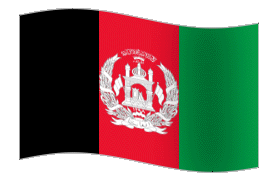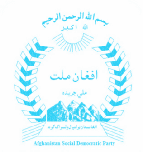دافغان ملت ملي مترقي ګوند

Afghanistan Social Democratic Party

Afghan Dilemma: Internal Factors and External Involvement
By: Ajmal Shams
Security situation in Afghanistan including the capital Kabul has been deteriorating with little hope of improvement in the near future. Whether it is suicide attack by the insurgents or bombing by coalition forces targeting the former, the major victims are always the innocent civilians. Despite a gradually increasing sense of resentment against the foreign troops, majority of Afghans are still convinced that the presence of coalition forces is vital for the minimal peace and stability they witness since the Afghan government seems neither to have achieved the capacity nor the credibility to consolidate its writ over the entire country.
Over the past few months, Pakistan has been under tremendous pressure from both the
US and NATO to do more in its fight against terrorism. The Democratic-
It is an open secret, however, that without a patronage and sponsorship, the insurgency,
if supposedly indigenous, would have died down long ago. Last year in October, Pakistani
President General Musharraf while acknowledging movement of militants across the
border into Afghanistan also admitted that some Inter Services Intelligence (ISI)
officers in his country might be assisting the insurgents. This makes Pakistan’s
overall role look more questionable as to why such abetting goes unchecked. Speculations
have also been going around that the Pakistani government is divided on its Afghan
foreign policy with Musharraf being highly committed to rooting out religious militancy
while certain quarters in his military particularly its intelligence wing ISI covertly
supporting the cross border militancy through secret links. Irrespective of whether
such presumption could be true, the fact remains that ISI has had a long-
The Pakistani proposal to fence and mine its border with Afghanistan as part of its
efforts to prevent cross-
The way the Afghan government has been handling the situation is not based on political
wisdom and ground realities either. In spite of the fact that the democratization
process has begun with peaceful holding of elections for presidency, the parliament
and provincial assemblies; the rampant corruption, lawlessness, drug trafficking
and warlordism have hampered genuine efforts for institution-
Bringing security to Afghanistan is a bilateral issue where the political will, steadfastness, political courage and wisdom is needed from both Afghanistan and Pakistan. No matter how much effort one partner makes unless the other partner follows suit, the ‘common’ goal could never be achieved.
The writer is President of the Afghanistan Social Democratic Party (well know as
Afghan Millat National Progressive Party) -
Copyright © Afghan Millat 2007-